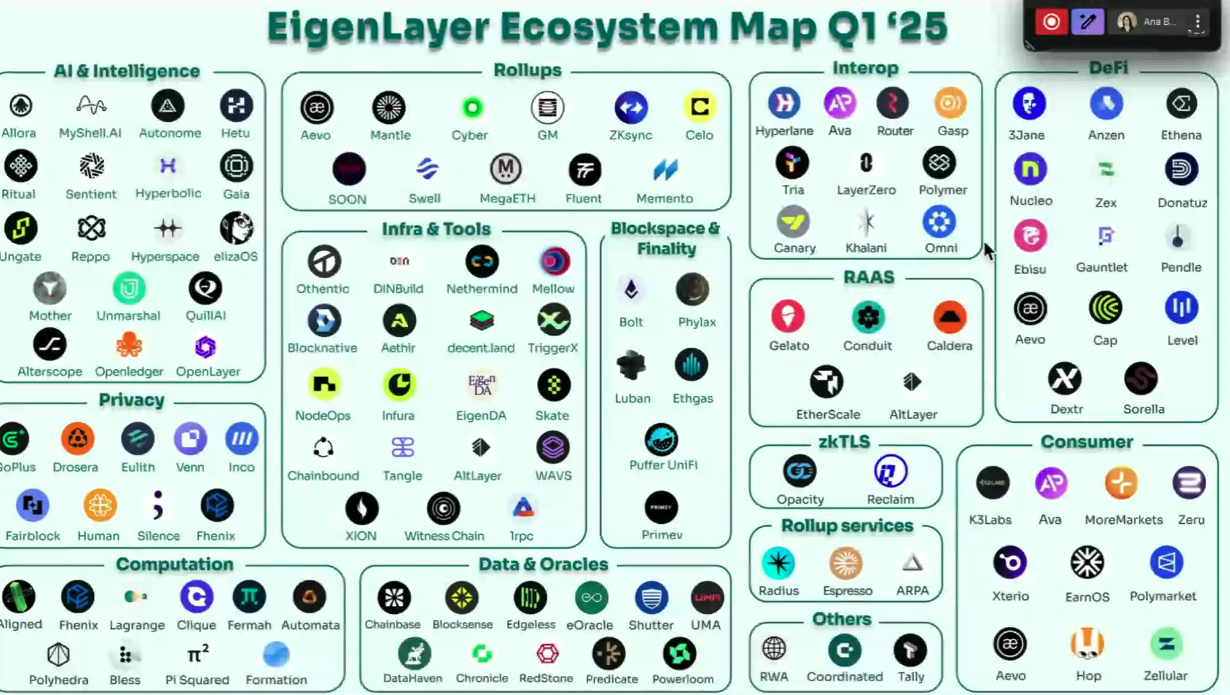Table of Contents
“We don’t care who wins. Whoever wins, we’re gonna win with you”, Chad Barraford, technical lead of decentralised liquidity network Thorchain, said in a conversation with Blockhead about the emergence of DeFi (decentralised finance) and the importance of cross-chain interoperability between different ecosystems.
ThorChain is a blockchain built using Cosmos-SDK. It also powers a DEX (decentralised exchange) by the same name, which allows users to swap tokens between different networks in a non-custodial manner.
For Barraford, Layer 1s such as Solana, Ethereum and Algorand are all “trying to beat each other up” with no clear winner, which is why applications like ThorChain help to facilitate interoperability by enabling these different ecosystems to have a common decentralised trading protocol.
Composability, or the ability for different dApps (decentralised applications) to effectively integrate one another, is also an important element of the broader DeFi ecosystem. According to Barradford, composability between and within ecosystems have enabled them to accomplish things that they would not have been able to achieve if they operated in isolation.
He also believes that the future of cross-chain composability will be one where users will not need to understand the technicalities of how it works.
“You have all these web services like Facebook and Netflix. Some of them run with Linux servers and some are run with Windows servers. It doesn’t matter because for you because you just watch Netflix or you post a thing on Twitter. You don’t really give a shit if it’s Linux or Windows… you’re just accomplishing what you want to accomplish. You don’t care about the technicalities. You don’t care about what’s happening underneath the hood, per se. You don’t need to understand these things,” he explained.
Citing the DeFi ecosystem on Ethereum, the store of value of Bitcoin, and the privacy of Monero, Barraford said that being able to access all these things concurrently is just like “heaven.”
“I think cross-chain composability is kind of taking a step towards the Internet itself, in the sense that it will empower you to have access to all the things you want to have access to without worrying about how difficult or complex it”, he said.
Regulating DeFi = Surpression of free speech?
According to Barraford, DeFi regulation is a a real possibility, with regulatory bodies such as the SEC (US Securities and Exchange Commission) already having oversight over centralized exchanges. However, Barraford also noted that they have not been able to lay down clear rules and regulations for decentralised exchanges, which is why regulating the DeFi industry as a whole remains a challenge.
The use of the Howey Test (a set of standards that an investment must meet for the SEC to consider it a security and regulate it as such) by the SEC to regulate cryptocurrencies is archaic, and Barraford said that the SEC cannot expect to use something that was first adopted in 1946 to effectively comprehend something as technologically advanced as DeFi.
“Electricity barely existed at the time, let alone computers, the internet, and digital cash,” he said
“You still have to redefine everything, and to redefine everything you need Congress to act. And if you’re you’re relying on Congress to understand finance in the in the DeFi space…they barely understand what Facebook is,” he laughed.
For Barraford, DeFi is software and if and when writing software becomes illegal, it would be against freedom of speech.
“If I if I write a book that’s called ‘How to Rob a Bank,’ there’s nothing wrong with that. That’s actually perfectly fine and legal. Robbing a bank is obviously not but writing a book about it is,” he explained
“It’s the same thing for software. I’m just expressing my own first amendment right to express myself as a writer of software. So to try to regulate that would be very difficult for the SEC to accomplish,” he added.
TradFi: DeFi ≠ Taxi: Uber
Describing how he developed his own blockchain as an academic researcher after being introduced to cryptocurrency while backpacking through Croatia, Barraford admitted that the space represents a “giant leap” from what society is currently used to, which is why education remains the key to adoption.
“It’s not like Uber where everybody already understood the concept of taxi was…that’s pretty self explanatory. This is different”, he emphasized.
Yeah, so I guess I think Tyler Telecom, is it. Yeah, yeah. He gave he gave you actually gave me
an an overview about 14 Essentially how decentralized it is. But I would love to get your your
your, your insights on that. So maybe you can give us a rundown of what is Thor chain, and
how decentralized is
07:09
just others. Yeah. So what it is is decentralized AMM, or main market maker that allows people
to to swap assets from one asset to another. And what’s unique about that, let me it’s
conceptually somewhat similar to like other atoms in space like uni or sushi. But what’s
different about it what makes economics it’s mark is that it’s it’s chain agnostic, they can
function between chains and not just the VMs but like, you kick so base chains like Bitcoin on
Bitcoin forks, Cosmos, you know, crypto nodes possible like everything’s possible all any just
about any chain in the world is more or less possible. And so it can be this this open,
decentralized and this transparent mechanism for us to this island and referred to as like
fundamental infrastructure of the entire cryptocurrency space to allow people to be able to
move their value from blockchain a blockchain B and kind of make this kind of isolated system
of like all these different systems of different blockchains that are very isolated from each other
and make them more holistically one. You know, so we don’t give them the space of like, a
segmentation of the block of the blockchain space, but just everything just this is at your
fingertips. You don’t need to, you know, worry about the intricacies of each individual chain,
you can just connect to all of them and have access to whatever it is that you want to have
access to. That’s kind of like some of the ethos behind it. So how decentralize it is. The network
itself has I think right now like close to 100, or like 94 I think I can take that number up top my
head, but close to 100 validators that all anonymous. I don’t know who they are running these
notes. I don’t want to know who these cards are and it can increase to, to the limits of whatever
Cosmos will allow which is approximately 200 or 250. We have other ideas in place or worth
thinking about to be able to decentralize beyond what cosmos is capable of doing going
towards on hundreds 1000s hundreds of 1000s it is theoretically possible. But we haven’t
started that work yet. But 100 is a pretty pretty good place to start from for the most part.
Yeah.
09:25
I mean, you have to start somewhere, right?
09:28
Yes, you have to start somewhere. And we’ve grown it from I think originally it was like a four
node validator system and then every week it just two more clones Chop, chop down and
started just kind of growing the security grow the decentralization. I mean, that’s always going
to be like a movement like we any project will start centralized, highly centralized in the very
beginning of the project and then over time, you tried to head down that path towards
decentralization. The problem is that a lot of projects in the space, they don’t really have a
path. They start off centralized and like, Hey, we’re gonna decentralized but then you ask them
like, well, how you would accomplish that? And they’re just like, well, we’ll figure it out. Yeah,
well, this. We’ll get back to that next year. We’ll figure something else somewhere. And here’s
like, Well, no, you’re running the whole thing of the multi SIG right now. So I don’t really likethat too much. You know. So like, for us, we have a very clear path, very well documented path
and we are walking that path. And so there’s more work to be done. Right? For sure. And we’re
gonna continue to do that. work but it’s just adds a process.
10:33
You know, going back to what you said about about isolated blockchains How Why do you think
this interoperability across gene independent web is important for for defy and of course for the
broader web three space, because right now, I guess, you know, my idea of Kryptos and, you
know, as you said, a lot of a lot of blockchains a lot of ecosystems, operating isolation, although
there are bridges and stuff like that, but just you know, there’s this avalanche, this Aetherium
this, this cosmos, it’s a mess, right and that nothing is joins them up. So what what, what are
your thoughts on that?
11:10
Yeah, it’s gonna be important. This next bull cycle, whenever that happens into the future, I
think the crashing was a build is gonna be a huge component. The composability itself has
proven within a particular ecosystem, how valuable it is being able to connect multiple
applications together to daisy chain them in a way that accomplish something that individually
they could not do. The very powerful power property to do to have that kind of composability
and interchange new pavilion or multi chain composability crossing composability like that’s
just taking it to the next level. Like, imagine a scenario where like, you have all these web
services like Facebook and, and Netflix and whatever, and some of them run with Linux servers
on the back end and some are run with Windows servers in the backend and that matter, right,
it doesn’t matter because for you, your users watching Netflix or you post a thing on Twitter or
whatever, and you don’t really give a shit if it’s, you know, Linux base on the back end of the
servers or Windows. Face. Like, who gives a shit like it’s just you’re just accomplishing what you
want to accomplish. You don’t care about the technicalities. You don’t care about what’s
happening underneath the hood, per se. You don’t need to understand these things. And so I
think the crushing composability is kind of taking a step towards the internet itself in the sense
of just like empowering you to have access to all the things you want to have access to without
worrying about how difficult or complex it is to actually accomplish to have a cross chain
composability where you can use the defy of Aetherium you can use the store of value of
Bitcoin. You can use the privacy of manera you can use, like whatever it is, and just have
access to the thing that you want to access to when you want to have access to it and then
combine all those things together is like that’s, that’s heaven. That’s what it should be. That’s
anybody who is an objective thinker. Who hasn’t been tainted by the ridiculousness of the
stupidity of this industry of like how dumb it is we do the things we do because it’s like our only
choices, but it’s just like, Oh, if it should be that way, like why wouldn’t it be that way? Like why
can’t I just use my bitcoin to get a yield on that or get a loan on my bitcoin or why can I you
know, use Mineiro to give at some privacy to my my Personal Capital, like why can I do that?
Like, you’re just like, well, you can’t do that because technological and cryptographic problems
will block but to that person that teaches but that way they don’t want didn’t care about it.
They don’t understand it, but care about that stuff. They just want to be able to do what they
want to do. And I think Thor chain is one of those products that it’s like helping us get furtherdown that road. It’s not like solving the problem entirely, but it is solving part of that issue to
make it so that’s readily available to everybody and whatever assets or chains or you know,
they want to use
14:01
I guess it’s it’s, it’s it’s also about becoming like a sort of a mainstream financial system, right?
Because when you operate in isolation, when when chains or when ecosystems operate in
isolation, it becomes like, it’s like, as if banks are unable to transfer money to each other. And I
think that’s the problem with with with with the blockchain ecosystem, Blockchain industry
right now. different ecosystems unable to work together. So yeah, that’s the key to actually
14:34
grab it and put it up and things could change your mind each other and then we do have a very
different system. Rubbish deep shit. Yeah, right. And in some ways, I think that’s what your
chain is trying to be. It’s kind of like that banks use Swift, right, this kind of framework and
traditional finance to transfer funds and I’m hoping that third chain will be kind of like a swift,
right. It’s a it’s a critical infrastructure of the entire system. But 98% of people don’t even know
that it exists or don’t even know that it’s doing what it’s doing. All they know is they go into a
store and they’re buying, disrupting a credit card or buying, you know, a coke or whatever. And
all these things happen. Like to make that work. But say it like we’re just like in that case. It’s
just like 10 or 12 different financial institutions that are involved in the process of settling that
credit card transaction, right, which takes days to go through that process to do it’s very, like
complex and very one actors are likely participating in this whole process just for a fucking
coke. Yeah, but like nobody understands all that. Stuff, right? Even people in international
finance, play, don’t really understand this. I don’t want to be honest with you. I don’t need to
understand it. And that’s kind of what I think what we’re heading towards.
15:44
And on that note, do you think blockchain can become like a sort of competitor to decentralized
exchanges? It’s a bit bit bit of a bit of a weird question, but like, you know, yeah.
16:01
So the way that I see is that torture is not trying to take over the world and then become the
biggest thing in the world necessarily, or like try to destroy uni or destroy sushi or destroy an
average Joe or like, whatever. That’s not what product is trying to do. In fact, it’s doing the
reverse of that where it’s actually impact. teraflops, you know, dy dx, I don’t know whatever
like it’s whatever. And it’s empowering them to be able to have access to not only the assets
and liquidity of Thor chain and within their own UI connected to it and like be able to trade
Bitcoin for ether within the uniswap You know, ecosystem but also be able to connect you to an
ecosystem that’s way over there, like, you know, average do on an avalanche, right. And so Oh,
you can trade from USDC on Aetherium or like link on Aetherium to USDC on avalanche within
the CUI right now they’ll go through bridges. And like different wallets and buying gas assets,mobile, like all these things, but in a single transaction in a single trade, you just select, oh,
here’s my link, I want to use DC on my avalanche address, click like, sent done. And then you
know, uniswap Whatever. trades that that link to if it gets sent to torching torching swaps or to
a Vax, a VAX gets sent to Trader Joe or pangalan or whatever. And then the pangolin, swaps it
for USDC and then sends it to their USDC all of complicated system. It’s happened, a lot of
moving parts and in very difficult things to accomplish, technically speaking, but for the users
perspective, I made one trade and I just got any asset I wanted when I wanted it
instantaneously. So every decks in the world will have access to every other decks in the world
and access to all assets and all the liquidity of the of the entire fucking crypto space, which is
crazy to think about. And that’s kind of why I’m saying it like like torching is very unique. And
almost every layer one in the in the space is just trying to like convince everybody. Oh, I’m
Solana I’m the greatest thing since sliced bread come to me because you know over here like
Leitha forget about a theory but they’re just terrible. Come over to Mito Solana like or whatever
like or terror like whatever, you know, algoryn whatever, like all the layer ones are fighting with
each other, trying to beat each other up. And so for us, we’re just like, No, no, no, you stay in
theory. Stay in Atlanta, stay in Solana, stay a Doge Maxi I don’t give a shit like stay wherever
the hell you are. We’re just going to come to you and empower your ecosystem to have a
decentralized trading in and out of your own business. Bitcoin pair to analyze Bitcoin pairs and
to you know, Dogecoin or whatever right? So we’re not like telling people like we’re the
greatest things plus but help whenever you make a trade on third chain, you don’t need to buy
room. You don’t even need to do that. You can just have your Bitcoin, some bitcoin in the
network and then you get your ether on the other side. Like it’s like that clean that simple.
We’re not trying to like force everybody into our world. We’re trying to empower our people in
their world. And that’s a much better play. Like do you ask me like it’s much better? Like we’re
not trying to be a horse in the race. We’re trying to bet on the race itself and powering the race
itself rather than trying to be like, we’re the horse number six. We’re gonna beat everybody
else because of XY and Z. And this is why we’re so smart and brilliant, blah, blah, whatever
horseshit you want to say, and we’re just like, No, no, we’re not doing a horse. We are the race.
We don’t care who wins. Whoever wins. We’re gonna win with you.
19:44
That’s a good explanation of poaching.
19:46
Yeah, it’s very, very different. Nobody else is really doing that. In the span. Everybody’s trying
to convince everybody else that they are investing. And we’re not trying we’re trying to do the
inverse. Yeah.
19:55
The whole space most of us everyday. There’s a new chain popping up saying that the next
Aetherium the next Aetherium killer. Yeah, so so great. So finally, any thoughts on the the
recent market crash and, and its implications for for defy20:15
labs. Um, when the market crashes, I think it’s kind of fascinating a little bit because, to me, it
felt like not really a bull cycle. Like it wasn’t fully like a usual Mixi a much more movement
upward, like, I think in you know, 2013 the Bitcoin I was like, around 1000 and then 2017 and
around 20,000, right. And then you know, recently it was like, the high was like 60,000,
something like this, which is just three extra previous like, it’s not really that much of mobile
demand, she gets smaller, every round. That’s That’s true, but like that, just the feeling of that
much moving. And so I think it’s partially because of like, some macro things happening and
you know, there’s Elon and China tweeting, and then Elon tweeted in China banning stuff. And
then there was a lot of larger macro thing happened that kind of disrupted the whole cycle of
my opinion. So now we’ve like we’ve pulled back to 20k or whatever on the Bitcoin side, and
like we really haven’t hit hard yet, like usually in a bear cycle we get, we get like an 80% or
90% or something, because don’t draw down. We really haven’t seen that quite yet. Right? So
for Ellison laquinimod stroke, and so like, we couldn’t go deeper. That’s true. And we probably
won’t as long as the macro the world economy that we don’t like in a world economy sense. We
don’t drive deeper into some sort of our session or, you know, something like larger on the
macro level. If the if the macro states say is good, like I think I think the market could recover,
to, not to all time highs in the immediate future, but like, at least you know, trend upward to
25k on the Bitcoin side and that kind of stuff. But it’s very well possible we could go we could
go to 15k or 12k on the Bitcoin bitcoin price, just depending upon what so I don’t think there’s
anything happening within the industry other than, like several collapses of like Terra and sci fi
collapse, blah, blah, blah, all that kind of had strong repercussions, obviously. But, you know, it
didn’t really ground us it didn’t really like hit a hit as hard. Obviously, you can’t say losing $50
billion in value in a matter of 24 hours or 48 hours or it was just small. But the market
capitalism didn’t get hit like 90 something percent, which is what typically happens at the end
of a global run, right? Most commonly this, but maybe it’s a whole new day. Maybe it’s a whole
new world like the old rules don’t apply anymore. Bitcoin and cryptocurrency in general has
been ahead enough by enough adoption, this point where it’s like broken past, like the 10%
adoption rate or something like this, or whatever the hell the numbers. So like, you know,
maybe maybe it’s a new world and the old patterns no longer apply. Who knows? I don’t to be
honest, I’m not really great about like market stuff like I’m not a market guy. I don’t even
consider myself to be investor or trader. I’m a builder. I’m an innovator. You know, I try to push
the envelope and think think of new things.
23:15
As you mentioned, like with the terror, implosion, and all that sort of stuff, what do you see
that’s, that’s coming next for Defy? Do you see, for example, regulation is regulation coming for
the FBI and how will that impact Defy?
23:30
It might come to the FBI. I don’t think it will try and Sue personally this is my two cents. To
bring a regulation to defy would be very difficult because
23:42
it wouldn’t be any more basic essentially.it wouldn’t be any more basic essentially.
23:45
If you need to redefine the words of the SEC, like in a literal sense, like, if I’m not mistaken, like
the definition of the word exchange, according to the SEC includes the concept of waterbucks
Okay, right. So for chain and uniswap and all these things aren’t exchanges, therefore, the SEC
has a hard time trying to, you know, placing exchange limitations they lay the regulations of
exchanges on to defy good, right but what isn’t fit the definition anymore, right. You can’t use
the Howey Test, which was I think was created like 1920 something or like super old and apply
it to such as violence. I mean, electricity barely just under the time, alone computers, let alone
the internet. Let alone digital cash. I mean, like so like, in order to like for them to regulate it.
They even have a prayer regular didn t do all this. It’s still questionable whether you’re like
regulated but like, even have a prayer. You still have to redefine everything and you have to
redefine everything you need. Like Congress to act and then you’re if you’re relying on
Congress to understand finance in the in the in the new defy space that’s they barely
understand what Facebook is. They don’t really like the old grandpa of the internet. Like it’s one
of the oldest web applications on the internet today. Like it’s one of the you know, and like, I
don’t even like get it like eyebrow so like, you know, they were asking Mark Zuckerberg
questions on, you know, on Capitol Hill and everything and they’re like, Well, how does people
make money? And then like Libre is like well, we have ads. Like, like it was just like this kind of
like weird moment of like, if you are struggling to understand Facebook, I don’t know. You’re
you don’t have a prayer to understand this space, which is a good thing and a bad thing
because if they don’t understand it, they might just create a law that doesn’t make any sense.
That ends up being really harmful and it just like, becomes a problem. I’m like trying to scare
developers like myself from actually trying to innovate and build and like, empower people to
be self you know, self self sovereign, have more liberty to be to manage their own financial like
future is like kind of a crazy notion which I would absolutely love. But if they make it so bad
that like that, that people excuse me, people like myself, then that’s gonna be really bad, not
just for crypto, but just like the general world in my opinion, right. It’d be it will be rough. It will
be rough. To do that. Right. And they might do it. Who knows? Who knows? But like to be, to be
fair, like that’s never happened in the history of least American society. Like, you cannot
regulate software today. Like there are no there’s not even a
26:39
organization within the US government that actually regulates software, like to make it illegal
to write certain software that actually doesn’t even exist. To my knowledge, right point doesn’t
exist to begin with. So you have to like create this new notion, right? That writing software is
illegal. When obviously, I would be against freedom of speech, right? If I if I write a book that’s
called How to rob a bank, there’s nothing wrong with that. I can write a book called How to rob
a bank. That’s perfectly fine. That’s actually perfectly legal. Right. Robbing a bank is obviously
not but writing a book about it. It’s not it’s not the right and so software, it’s the same thing. I
am just expressing my own first amendment right to express myself as a writer of software.
Right. So to try to regulate that would be very, very, very difficult for the SEC to accomplish. In
fact, they tried to do this a while back, there was a guy. I think it was in the 1990s. He was he
lost his license to practice, like investment and be a CPA and like all these things, because he
was doing all this like insider trading and blah, blah, right? So this is see, removed his license,
right? Rightfully so the guy was doing something illegal. And then later on the guy decided,right, I’m gonna write a newsletter about the stocks that I like, right? And then the SEC came
was like, no, no, no, we took away your license. You can’t give advice. About what stocks you
like and what stocks you don’t like, well, you lost your license, you can’t do that. And the guy
sued the SEC. I think he brought all the way to the Supreme Court, and he won, because the
SEC does not have the right to was to take away your freedom of speech. And for him, I can I
don’t I’m not giving advice to a particular person as a CPA professional. I’m just writing a
newsletter letter that anybody can, you know, go to the store and buy and read it and and take
it or throw the trash. It’s a free world, right? And so the SEC attempted to stampede on this
man’s freedom of speech and lost that battle. And so if the day would ever come up, they
would say it’s illegal to write software like NAMM or something like this, then that’s going to be
a freedom of speech issue. In which case, somebody’s going to do it. I don’t know if it’s me or
somebody else in the world, but somebody is going to go ahead and sue the agency for for
trampling on the freedom of speech. And I think to be honest, I think we have a really good
chance of winning in the Supreme Court of freedom of speech, and I can write whatever
software I choose because it’s expressing myself.
29:17
Yeah. That’s a great point. That’s a great point. Yeah, thank you. So much for for this interview.
Great insights, and we can we can we can definitely do an article. We’ll do an article on this.
Basically, insights and then move moving forward, I guess. We’ll be in touch. If you mean,
obviously, you know so much about the ecosystem. And we as journalists, we don’t because
we’re not Buddhist. So it’d be good if we can if we can keep coming to you for for insights,
29:56
of course. You got my telegram. You got questions. Whatever helped me as they should have
the response should.
30:03
What I need from you now is just a bit of the small small details. I will need a landscape photo
of you and some maybe some some some pictures of 14 just random dodging just put out
articles. If you’re comfortable with that.
30:22
Yeah, no problem. Yeah. I’ll figure out where I can get pictures of Thorgy.
30:28
But like, your background is perfect. Something like
30:3230:32
oh, yeah, I can give you this one. Yeah, something I think it actually yeah, this one I have a few
of these that somebody laid for me just for background purposes. So so so so so nice to meet
you. Nice to meet you. Talk to you. Yeah, and I think you do.
30:46
So given touch. Yeah, yeah. Thank you. So much. Thanks










